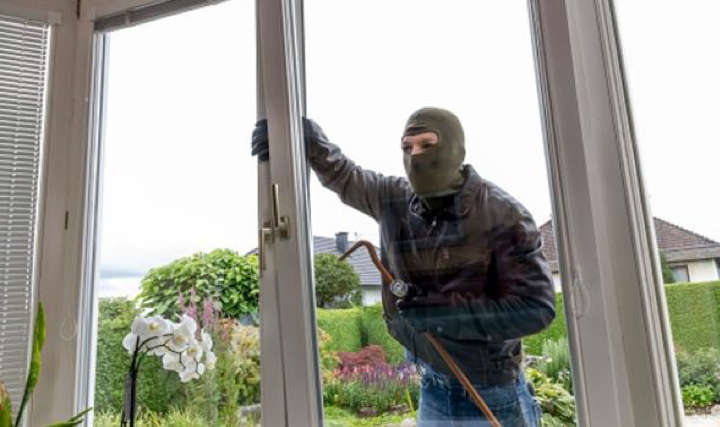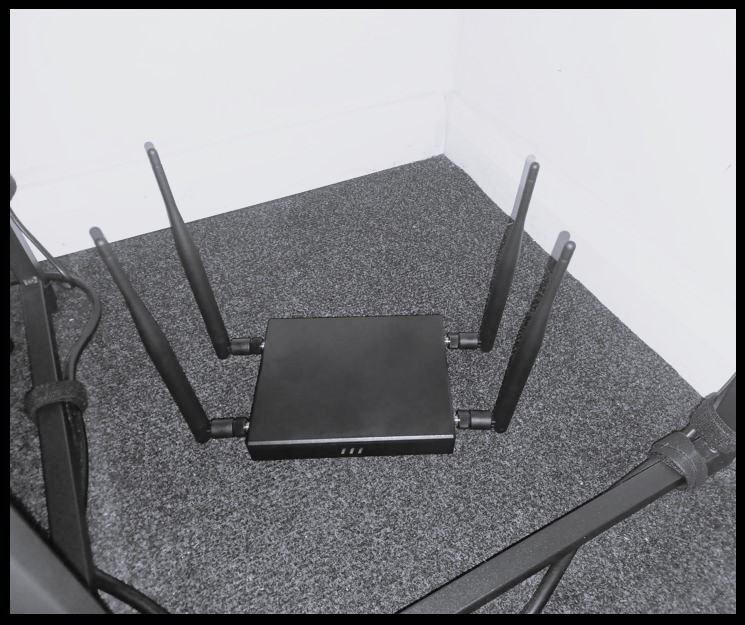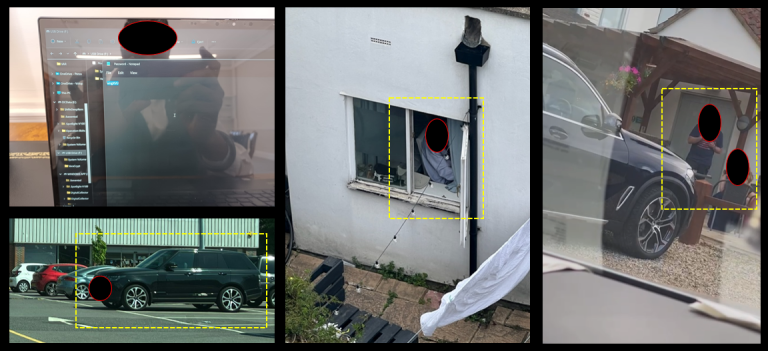Home Security Advice and Tips
Most of us have relaxed our attitudes towards property crime while in lockdown. However, being at home more doesn’t necessarily equate to better protection against crime. While there has been an overall drop of 28% in crime, it doesn’t mean the nation is suddenly crime-free. Some UK counties have actually seen an increase in organised property crime. Sussex Police issued a warning about burglaries in the county and asked residents to tighten up their home security systems.
The following is advice and tips on how to make and keep your home safe during the lockdown and beyond.
1. Doors and Windows:
Have a review conducted of your door and window security (including internal doors to conservatories, garages etc.) in order to make sure all windows and doors have the most appropriate locks: Ask yourself – Are the locks in good condition/properly fitted? Do your locks meet your insurance requirements? Poorly Fitted locks are vulnerable to attack and therefore increase the risk to the property.
2. Check your locks are up to British Standard:
BS3621 is the standard which most insurance companies require your locks be fitted to. British Standard is where locks are tested against common burglar techniques such as drilling and picking. Locks that can be upgraded to this include Mortice Locks, Night Latches (Yale type) and Rim Cylinder locks. If you live in a block of flats or apartment the standard BS8621 is recommended which allows anyone to exit in an emergency without needing a key.
3. Sash Jammers:
You may also want to install top and bottom bolts on French doors or add ‘sash jammers’ to UPVC doors/windows. Sash Jammers stop a door or window from opening, they are easy to fit, inexpensive (approx. £10 each) and can also be fitted to Wooden doors and windows.
4. French/Patio Doors:
Before adding additional security, all French doors should have the following standard of lock and or handles: Lock Cylinder approved to SS312 Diamond (or at least 3* Kitemark) Door Handles approved to SS301 Bronze or TS007 2*. Consider adding a ‘Patlock’ (Police approved, requires no keys/codes) which ensures the door cannot be opened by holding the internal handles in place. A Patlock (approx. £50) prevents the external handles from working even if the lock is snapped and a burglar tries to open the doors.
5. Digital Door Viewer:
Allows you to view who’s at your door before you open it. Advantages are: easy to fit and install in a new location or existing door, easy to remove if you move, motion sensor/LCD display and HD video and image recorders. In addition you can link it to video/audio intercoms. These increase security in all properties but are Ideal for apartments/flats where you can identify who’s at the front door and allow remote access. In addition, these can be very useful for the elderly who can converse with visitors without having to open the door in order to identify the caller.
6. Door Chains:
A more basic way to check who is at your door before opening is to fit a door chain. There are now door chains available for uPVC/Composite doors which are simple to fit and not expensive, they can prevent ‘distraction burglaries’. We suggest if a chain is fitted it is ‘Police Approved’ which means the chain is accredited by Secured-By-Design. The approx. cost of a Police Approved door chain is £20. Consider having it professionally fitted.
7. Letterboxes:
Adding a letterbox guard (letterplate) can help prevent letterbox ‘fishing’ where criminals try to remove your house keys (other items) through your letterbox. A guard prevents letterbox fishing & lock manipulation (opening door lock through the letterbox ). Guards can be fitted to uPVC, wooden and composite doors. We suggest any guard is professionally fitted and approved to TS008 standard.
8. Security Window Grills/Bars:
Side windows in a house can be vulnerable and smashed in order to reach keys and gain entry so consider adding reinforced glass or even blocking up the window. Decorative grills and bars can also vastly improve the security of a home without being detrimental to the aesthetics. There are various types of security grills from fixed to collapsible. These require professional fitting. Grills and bars act as a deterrent, add extra security, and prevent people breaking a window to gain easy entry and access.
9. Remote Access CCTV Systems:
These systems are an effective way to keep a watchful eye on your property while you’re not there. Advantages include: can be remotely viewed either via Internet access or smartphone. Some systems notify you when the alarm is activated, allowing you to check the cause. CCTV cameras will instantly put off a thief because they will be aware that the technology might send an alert to the owner’s phone to let them know they are being burgled. In addition, the footage also acts as potential recorded evidence that will go against them in court and get them prosecuted.
10. Security Alarms:
Installing a Burglar alarm can be very effective addition to your home/property security .
11. Front and Back Door Sensor Lighting & Light Timers:
Sensor lighting to the front and back door of your home will deter potential thieves and help you gain entry into your home in the dark. We suggest they are professionally fitted. Consider installing a number of light timers around the house so it appears someone is home, as opportunist thieves can often approach houses that look like nobody is home. Light Timers are usually easy fit as they simply plug into power socket without any need for complications installations.
13. Home Security Safes – Hide your valuables:
Home safes are becoming increasingly popular too, so you may want to consider installing a security safe. Fireproof safes are available so you can store important documents. A professional can advise on the rating of safe you may require. Safes have rating and need to be professionally fitted as this will dictate the amount of cash/jewellery covered by your insurance company. Look for independent approval such as the AIS logo or Sold Secure approval when purchasing a safe, as this usually automatically means the safe is insurance approved.
14. Replace Your Keys:
While you are reviewing your security it is also worth considering when your keys were last replaced. Do past owners or tenants still have keys and access to your home? and has anyone had copies of your keys made without your knowledge. Consider – a) One key for all your door locks (e.g. front and back doors), ‘Keying Alike’, this means if you ever lose your keys you will only have to replace one key. b) Keys that cannot be copied, ‘Patented Keys’ – Prevent someone from copying your keys by fitting a patented system, this means keys can only be copied with proof of ownership. Any concerns change your locks.
15. Garden Shed Security:
If you have a garden shed, make sure you source a good quality lock to protect it and the contents. Use a Sold Secure approved padlock, that is independently tested against numerous criteria, to prevent break-ins. A ‘shed shackle’ can prevent items from being stolen during break-ins on wooden sheds. Chain the items you want to keep safe (e.g. power tools or bikes) to the shed shackle to keep them secure. In addition – Review the Exterior of Your House/property, make sure there are no broken windows or access to your property through garages or conservatories. Lock any tools and items such as ladders away. Have a professional security assessment conducted.
16. Car Keys:
Statistics show that thieves are increasingly breaking into homes to steal car keys so don’t make it easy for them by leaving keys in view or in an obvious place.
17. Bad Habits:
Consider your own influence on the level of security for your home and make sure you don’t commit bad habits such as leaving keys in locks or in view that you and your family may have.
Remember to:
- Set alarms – change alarm codes frequently, lock side/back gates, remove keys from locks
- Change (mix up) your routine – while many burglaries are spontaneous, some criminals take the premeditated route. Many burglars still prefer to plan their activity and part of the strategy is knowing the victim’s routine
- Be wary of what you post online – are your social media accounts on private? And do you really know everyone who has access to view your profiles? The answer is probably no. Your posts could be giving potential burglars the information they need to successfully break into your home
- Hide valuables/attractive items – Leaving valuables in plain sight is another way to attract thieves. Leaving valuables in view of windows, doors and letterboxes can attract unwanted attention from opportunist thieves who can target items and be off in seconds
- Don’t forget to ‘lock-up’ – We often think that burglaries are planned and there is nothing we can do to stop the awful event from happening, but that isn’t true. It’s a common misconception that burglaries are always meticulously planned. In reality, 47% of UK burglaries are ‘spur-of-the-moment’.
Valkyrie





